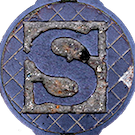Roam Discourse Graph extension
Discord
I think of all of these tools as "personal hypertext notebooks" - basically taking what is possible in wikis (organizing by means of linking, hypertext) and lowering the barrier to entry (no need to spin up a server, can just download an app and go).
The common thread across these notebooks then is allowing for organizing and exploring by means of bidirectional hyperlinks between "notes": - In Obsidian each linkable note is a markdown file and can be as short or long as you like - in Logseq/Roam and other outliner-style notebooks, you can link "pages", and also individual bullets in the outlines on each page.
In this way, the core functionality of these tools is similar to a wiki, but they do leave out a lot of the collaborative functionality that makes wikis work well (granular versioning and edit histories, talk pages, etc.). So for folks like <@305044217393053697> who are comfortable with wikis already, they add marginal value IMO.
Their technical predecessors in the "personal (vs. collaborative) wiki" space include TiddlyWiki and emacs org-mode (and inherit their technical extensibility: many users create their own extensions of the notebooks' functionality. an example is the Roam Discourse Graph extension that <@824740026575355906> is using).
These tools also tend to trace their idea lineage back to vannevar bush's Memex and ted nelson's Xanadu.
These tools are still not entirely mainstream compared to tools like Notion, which is related to your experience trying to learn more about the tools - so they tend to have a steep learning curve!
IMO the best way to get a feel for what they are is to see some examples/videos.
I like this video for an overview of Logseq: https://www.youtube.com/watch?v=ZtRozP8hfEY&t=6s
I describe Roam and the Roam Discourse Graph extension in this portion of a talk I recently gave: https://youtu.be/jH-QF7rVSeo?t=1417
i agree it's not universal! my feeling is that Claim: a statement (claim or evidence) might be the more universal element: - empirical work also consists of statements about the world (this is less controversial) - design/technological innovation rests in part on claims about a) what is needed in the world, what is hard to do, constraints, and b) what is needed to succeed: examples here: https://deepscienceventures.com/content/the-outcomes-graph-2 (h/t <@559775193242009610>) - theories often consist of systems of core claims (e.g., in models like what <@824740026575355906> and <@734802666441408532> are working with, where we can think of the claims as subgraphs of the overall knowledge graph)
see, e.g., Evidence from this review of models of scientific knowledge https://publish.obsidian.md/joelchan-notes/discourse-graph/evidence/EVD+-+Four+positivist+epistemological+models+from+philosophy+of+science%2C+including+Popper%2C+emphasiz...+statements+as+a+core+component+of+scientific+knowledge+-+%40harsDesigningScientificKnowledge2001
and Evidence convergence/contrasts across users of the Roam Discourse Graph extension in terms of building blocks: common thread across all was Evidence
